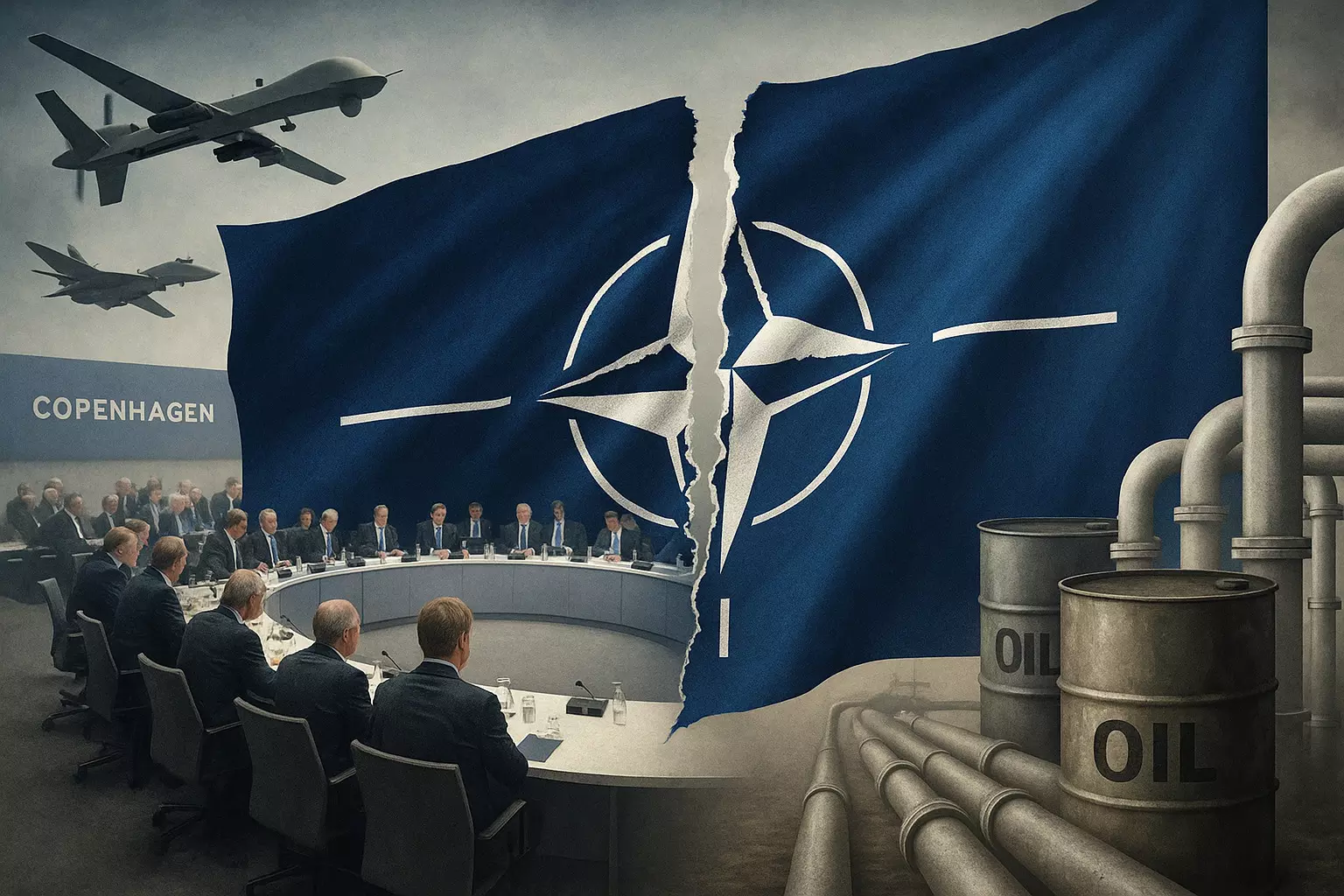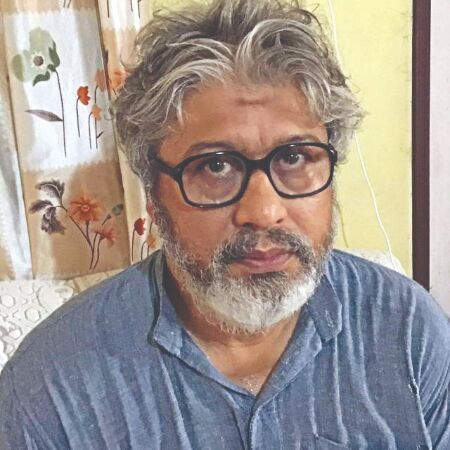Europe at War, NATO at Bay
Europe stands divided as drone threats, oil politics, and NATO’s waning influence expose a continent struggling to defend its security, unity, and strategic autonomy amid rising Russian assertiveness

Danish Prime Minister Mette Frederiksen said on Thursday (October 2) that Europe was in a hybrid war being waged by Russia, and Ukraine was the continent’s first line of defence. Hybrid warfare involves the use of conventional methods, such as tanks and missiles, as well as nonconventional ones, such as cyber-attacks and internet disinformation. She made this statement at the Seventh European Political Community Summit held on October 2, 2025, in Copenhagen, Denmark. The summit was attended by the heads of state or government of the 43 countries participating in the European Political Community, along with the presidents of the European Council, the European Commission, and the European Parliament, as well as the Secretaries-General of the Council of Europe and the North Atlantic Treaty Organisation (NATO). It was reported that before the meeting, a special radar system was set up at Copenhagen airport to maintain surveillance. France, Germany, the Netherlands, Sweden, and the United Kingdom also sent aircraft, ships, and air defence systems to Denmark in advance of the talks.
Europe in disarray
The Seventh European Political Community Summit gained additional importance as unidentified drones recently flew over Denmark’s military sites, including its largest base, with officials hinting at possible Russian involvement. Mysterious drone sightings across the Scandinavian country over the past week prompted the closure of several airports, including Copenhagen Airport. Drone detection reports also led to the temporary closure of Oslo airport earlier in the week.
Drone incursions into Polish and Romanian territories and the violation of Estonian airspace by Russian fighter jets have raised tensions in the region amid Russia’s ongoing assault on Ukraine. Frederiksen pointed the finger at Russia, calling it the “main country that poses a threat to Europe’s security.” The drone flights began just days after Denmark announced in mid-September that it would acquire long-range precision weapons for the first time, stating that Russia would pose a threat “for years to come.” The announcement followed Denmark’s largest-ever arms purchase, amounting to 58 billion Danish crowns ($9.2 billion) for European-made air defence systems. Following successive drone incursions, defence ministers from about ten European Union countries agreed to make a so-called “drone wall” a priority for the bloc.
Although European Union leaders spent a day in the Danish capital discussing how to bolster the continent’s security, the summit did not go quite according to plan, with much discussion but few results. EU countries were not ready to endorse a European Commission plan to use frozen Russian assets to finance a €140 billion loan to Ukraine. One of the reasons the deal was not agreed upon in Copenhagen was that some countries, especially Belgium under Prime Minister Bart De Wever, were cautious since Belgium would bear the brunt of any Russian legal action. It emerged that leaders were bitterly divided over the prospect of using frozen Russian assets, with Belgium and Hungary leading the sceptics, while others, including Germany, were strongly in favour.
On defence issues, European heavyweights France and Germany expressed scepticism about a drone wall managed by the Commission, while southern countries pushed for a broader concept that would also protect their borders. French President Emmanuel Macron urged the European Union to proceed with caution. Italian Prime Minister Giorgia Meloni also warned against overreacting.
An exasperated Ukrainian President Volodymyr Zelenskyy warned European leaders that Russia was “stepping up its destructive actions” and told them that “what matters most for European security now is political will.” He also discussed the prospect of gaining access to US long-range missiles. However, Danish Prime Minister Mette Frederiksen vowed to push ahead with Ukraine’s accession to the European Union despite Hungary’s veto.
Differences among European leaders also surfaced over the purchase of Russian oil. Poland accused Hungary’s populist leader Viktor Orbán of “financing” Moscow’s war in Ukraine by purchasing Russian oil. Speaking at the Warsaw Security Forum, an international conference dedicated to European and global security, Polish Prime Minister Donald Tusk described Moscow’s three-and-a-half-year assault on Ukraine as part of a recurring global project aimed at “enslaving nations, robbing individuals of freedom, and enabling the triumph of authoritarianism, despotism, cruelty, and the erosion of human rights.” However, Hungary’s Prime Minister Viktor Orbán, known for his Moscow-friendly stance within the European Union, responded sharply on social media platform X, saying, “Dear Donald Tusk, you may think that you are at war with Russia, but Hungary is not. Neither is the European Union. You are playing a dangerous game with the lives and security of millions of Europeans. This is very bad!”
Lost relevance
With the disintegration of the Soviet Union and the end of the Cold War, NATO lost its relevance in a unipolar world led by the United States. However, the Russian Federation enjoyed cordial relations with NATO until 2014, when Russia annexed Crimea. President Putin justified Russia’s aggression against Ukraine by maintaining that if Russia did not act, Ukraine would have been “drawn into NATO.” This view is also shared by John J. Mearsheimer, who, in his Foreign Affairs article titled “Why the Ukraine Crisis Is the West’s Fault” (September 2014), wrote that NATO expansion was “the central element of a larger strategy to move Ukraine out of Russia’s orbit.” He argued that “the United States and its European allies share most of the responsibility for the crisis. The taproot of the trouble is NATO enlargement, the central element of a larger strategy to move Ukraine out of Russia’s orbit and integrate it into the West.”
Following the end of the Cold War and the dissolution of the Soviet Union, NATO sought to build a partnership and pursue dialogue with Russia, including through the NATO-Russia Council (NRC), a forum for consultation on security issues and cooperation. In June 1994, Russia became the first country to join NATO’s Partnership for Peace (PfP), a programme of practical bilateral cooperation between NATO and partner countries. The Brussels Summit Declaration of January 1994 defined the goals of the PfP as expanding and intensifying political and military cooperation in Europe, increasing stability, reducing threats to peace, and building stronger security relationships. On May 27, 1997, NATO leaders and President Boris Yeltsin signed the NATO-Russia Founding Act, expressing their determination to “build together a lasting and inclusive peace in the Euro-Atlantic area on the principles of democracy and cooperative security.”
On May 28, 2002, NATO leaders and President Vladimir Putin signed a declaration in Rome titled “NATO-Russia Relations: A New Quality.” This established the NATO-Russia Council as a consensus-based body of equal members. The NRC led to cooperation in areas such as counter-terrorism, crisis management, arms control, and theatre missile defence. However, relations soured due to Russia’s military action in Georgia in August 2008, which led to the suspension of formal meetings of the NATO-Russia Council and cooperation in some areas. During the Lisbon Summit in November 2010, NATO leaders and Russian President Dmitry Medvedev agreed to embark on “a new stage of cooperation towards a true strategic partnership,” based on the goals and principles of the NATO-Russia Founding Act and the NATO-Russia Rome Declaration.
In March 2014, relations between Russia and NATO broke down after Russia annexed Crimea, part of Ukraine’s sovereign territory. In response, on April 1, 2014, NATO Foreign Ministers decided to suspend all practical cooperation with Russia. On March 27, 2018, the NATO Secretary-General announced the withdrawal of accreditation for seven staff members of the Russian Mission to NATO. After Russia invaded Ukraine in 2022, the relationship became openly hostile. Nonetheless, the NATO-Russia Council, an important platform for dialogue, has never been formally suspended.
Currently, NATO navies are struggling to contain new threats from Russia at sea. The “grey-zone conflict” between the West and Russia is escalating both at sea and in the air. On September 19, as Russian MiG-31 jets violated Estonian airspace, NATO’s naval forces found themselves on the front lines of efforts to confront the world’s “shadow fleet”—ships that conceal their identities. The number of such vessels has risen from 200 in 2022 to about 1,000 today. Some are evading sanctions by smuggling Russian oil, while others are suspected of espionage and sabotage across northern Europe.
Significantly, amid this crisis, the Trump administration is preparing to phase out funding for U.S. security assistance programs that support European countries bordering Russia. The move is part of a broader push for NATO allies, particularly in Europe, to increase their defence spending. Pentagon officials reportedly met behind closed doors with European diplomats in August to inform them that the United States would no longer fund programs to train and equip militaries in Eastern European countries that share borders with Russia. Meanwhile, Russia issued a warning on Saturday (September 27) to NATO powers after Ukraine announced it had received, for the first time, a U.S.-made Patriot system from Israel to strengthen its defences.
Oil still decides global politics
Despite heated debates on fossil fuel-induced global warming, oil and gas continue to dominate global politics and the global economy. The recent Indo-U.S. trade conflict over the purchase of Russian oil is a case in point. However, the dynamics of oil politics have extended beyond the Middle East to Russia and Venezuela. Estimated at 303 billion barrels (Bbbl) as of 2023, Venezuela holds the largest known oil reserves in the world Saudi Arabia ranks second with 267.2 Bbbl, followed by Iran with 208.6 Bbbl and Canada with 163.6 Bbbl. Russia and the United States have 80 Bbbl and 55.25 Bbbl, respectively. In addition to oil, Russia possesses vast natural gas reserves, accounting for 14.8 per cent of the world’s total oil and gas resources.
This week, Venezuela’s parliament ratified an Agreement on Strategic Partnership and Cooperation with Russia aimed at strengthening peace, security, and sustainable development, as well as consolidating a fair, multipolar world order. China—a major buyer of Russian and Venezuelan oil—has destabilised the dominance of the petrodollar, which has ruled the global economy for nearly eight decades. The expansion of China’s digital yuan and financial technology is facilitating yuan settlements in crude trade and hastening the decline of the petrodollar.
Europe now stands at a crossroads. NATO has lost its teeth, and the continent cannot ignore the emerging global power of the Russian Federation, which enjoys the support of China and other nations of the Global South. In its battle against NATO and U.S. hegemony, Russia has found trusted allies in China and North Korea. Moreover, Russia and India remain prominent members of BRICS and the Shanghai Cooperation Organisation (SCO).



